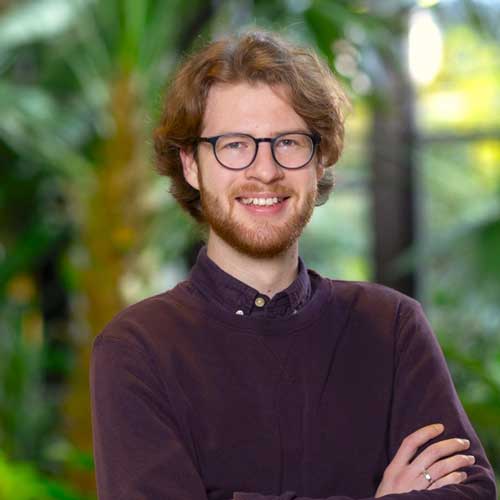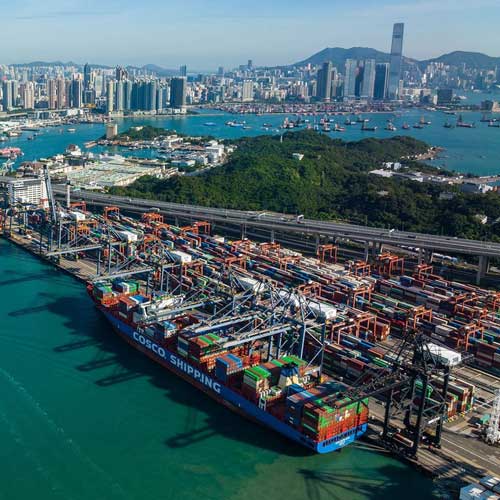Meet Aleksandr, Maritime Consultant

I consider Haskoning a wonderful company that provides almost unlimited learning opportunities and enormous space to develop myself and to build my career path.
His road to Haskoning
After his graduation, Aleksandr started working for one of the most prominent design organisations in Russia's maritime sector. “During my time there, I was involved in over 25 maritime projects. Due to international collaboration within some of them, I had an opportunity to be in contact with lots of organisations beyond my country, for example, with contractors and clients from the Netherlands, Germany, Norway, Turkey and Japan. After working there for around three years, being involved in concepts and design documentation for all kinds of seaports and marine terminals, mostly within Russian territory, I felt it was time for a change. So that’s when I started looking for new worldwide opportunities.”
“I already knew about Haskoning as it was an international consultant for one of the projects I participated in. So when I started to search for new job opportunities, I contacted one of the their employees (who represented the company in that project) via LinkedIn, and after a few online interviews with the team manager and some of the team members, I got an offer, and I decided to take it and move to the Netherlands.”
Settling in
“The first few weeks in the Netherlands were, as expected, quite hectic. Not only did I have to start my new job, but I also faced the struggle of the apartment search, which appeared to be quite a severe challenge, I would say. However, after the first onboarding week, I was immediately involved in a big project, which is still ongoing. In addition to this project, within the first month, I also helped my colleagues from port planning and maritime consultancy with some tasks on several different studies, which was a great way to meet my colleagues and learn more about the types of projects we work on.”
The bigger project I am involved in is CO2 offloading terminal for an energy-producing company that wants to contribute to the environment by installing a facility that will capture CO2 emissions. Afterwards, CO2 is expected to be liquified and shipped via waterways from the power plant to another facility for storage and utilisation. I am responsible for port planning and navigational studies. This means that I choose the location for the potential CO2 offloading terminal, calculate its capacity (to determine how many quays and what equipment is required), investigate the bottlenecks in the navigational road, determine how many vessels will be needed and much more. In addition to fascinating feasibility study, in this project we had a lot of meetings and workshops with shipping companies, equipment manufacturers and teams within our organisation regarding, for example, vessel concepts, handling equipment and pipeline design, safety and environmental issues. A massive and comprehensive study, which I am grateful for being part of."
Getting to know everyone
“Something else that was of great value in getting to know everyone from the team - all the social events within the organisation. With hundreds of colleagues, our Resilience and Maritime Advisory Group is relatively big, but due to all the events and the warm, welcoming attitude of the colleagues, after only a few months, I know almost everybody from my related teams and the good half of the whole Advisory Group. What is more, I even organised one of the team events! We arranged a trip to the Marina in Monnickendam, where we got a guided tour around the marina and the old city, and we concluded our day with a culinary festival where everyone brought a dish from their place of origin, sharing it with all other team members.”What makes Haskoning special
“Something I really value within Haskoning is the organisational and management structure. My Advisory Group is a big pool of specialists with certain skills and experiences, and Project Managers create an A-team for each project, working together to create the best result. It is your responsibility and self-management to organise your work and choose what projects and studies you participate in. This comes with a lot of flexibility in when and where you do your work, which also provides a great opportunity to go to different offices for collaboration with your team, sharing your vision knowledge and making a huge benefit from massive networking. To conclude, I consider Haskoning a wonderful company that provides almost unlimited learning opportunities and enormous space to develop myself and to build my career path."Do you also want to work for a global leader in maritime services?
Then, join our fast-growing team. We are always looking for talent that wants to enhance society together. Talent that likes to be challenged to keep up with the latest innovations in our work domain. Are you the talent we are looking for?
